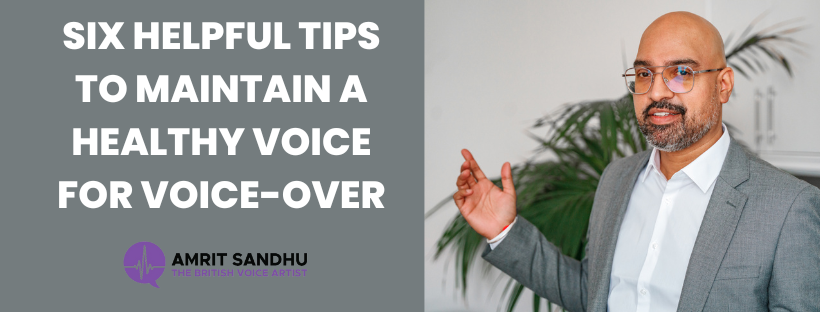Maintaining a healthy voice is essential not only for a newbie but also for a professional voice-over. Your vocal health as a voice talent is both your product and investment in the voice industry that you are in. Since voice-over talent uses their voice for their work, spending most of their time recording puts them at risk of developing voice problems.
In order to avoid these voice problems, here are some suggestions on how to maintain a healthy voice:
Drink Plenty of Water
Make sure that you stay hydrated so drink plenty of water. Water works very well, either at hot or room temperature. Drinking plenty of water makes your vocal chord lubricated. As suggested by the medical experts, drink at least eight glasses of water a day.

Avoid Extreme Use of Vocal Cords
Avoid yelling and screaming because it will stress your voice and can damage your vocal cords. Try speaking in your normal vocal range.
Have Vocal Rest
Remember that your vocal cords are muscles, and just like any muscles in your body they also get tired. Regularly resting your voice for short periods throughout the day will help relax your vocal cords.
Avoid Smoking and Alcohol
Voice-over talent should avoid smoking or second-hand smoking since the smoke will irritate the vocal folds. Smoking has bad effects on health either in the short-term or long-term. Avoid also drinking alcohol, especially on the day of your recording, alcohol irritates the mucous membrane that lines your throat and can dry vocal folds also.

Maintain a Healthy Lifestyle and Diet
Maintaining a healthy lifestyle and diet is the key to a strong voice. Add fruits and vegetables to your diet, these foods contain vitamins A, E, and C and help keep the mucus membranes that line your throat healthy. Avoid eating spicy foods because they cause stomach acid to move into the throat or esophagus. Voice-over talent should also exercise regularly. Exercise improves muscle tone and stamina that helps provides breathing and good posture.
Practice Proper Breathing Techniques
Voice-over needs to know proper breathing and its power to express emotions while delivering different kinds of voice-overs. Don’t rely on your throat alone, you must support your voice with deep breaths from the chest. Speaking from the throat, without supporting breath will put a great strain on your voice.
The following procedure will help you practice proper breathing techniques:
Exercise – Intense cardio exercises can increase your lung capacity as you will be obliged to breathe heavily during the activity.

Maintain good posture – Bad posture creates tension in your upper body and limits your lung capacity. Keep your back and shoulders straight to allow better airflow into your lungs and reduce tension.
Practice tongue twisters – Tongue twisters are very useful for voice-over artists as they help with breathing techniques and articulation. Practice repeating numerous tongue twisters non-stop as quickly as possible. This exercise will leave you out of breath and help you learn to control your breathing.
Relax your upper body – A tense body requires more oxygen since the muscles are continuously working which requires oxygen. Before you begin your recording try to relax and stretch your upper body to reduce the need for oxygen. As a result, you’ll take lesser breaths.
Talk slowly – When recording, don’t rush your words. Talk slowly so you can have more time to inhale and exhale, making you take softer breaths and control them better.


